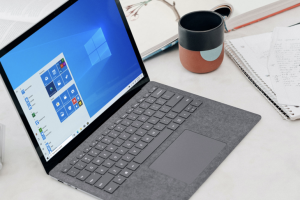Those who were born in 1997 or later were most affected by the disruption the coronavirus brought to the workforce, according to data from Oracle and Workplace Intelligence.

Image: iStock/SIphotography
While the actual virus created a devastating worldwide health crisis that resulted in fatalities and long-lasting effects to those who contracted it, COVID-19 impacted and changed—perhaps forever—lifestyles. And one of the most impacted areas of daily life is work. A new study, AI at Work, from Oracle and Workplace Intelligence revealed the pandemic impacted workers’ mental health challenges differently based on seniority, generation, and location. Globally, the report found that compared to older generations, the younger generations have struggled the most, with Gen Z and millennials working harder, more stressed, and the most willing to turn to AI for support (23%); they are also the group who feel the most burnout.
All generations in all geographic areas involved in the survey said they want help from their employers: 78% said their mental health was negatively affected by the pandemic, 76% said their company needs to be more protective of their employees’ mental health, and 83% want the company to provide technology to support their mental health.
SEE: TechRepublic Premium editorial calendar: IT policies, checklists, toolkits, and research for download (TechRepublic Premium)
Gen Z and millennials seek AI relief
The results found 89% of Gen Z and 83% of millennials said the pandemic negatively impacted their mental health, compared with 62% of baby boomers. Employees who struggled the most with mental health at work were from the US, India, the UAE, and China. Italians, Germans, and the Japanese reported being less impacted.
But the youngest of the working generation, Gen Z, was more likely to be negatively affected by the pandemic than other generations. Nearly 90% of Gen Z said that the pandemic negatively impacted their mental health, and that workplace stress impacted their home life (94%).
Gen Zers did not demonstrate an ability to adhere to boundaries as their boomer counterparts and were twice as likely as boomers to work extra hours.
Gen Z workers were found to be 105% more likely than boomers to speak to a robot instead of their manager about stress and anxiety at work, and 73% more likely than boomers to benefit from AI at work, with 90% of Gen Z reporting AI helped their mental health at work and 93% of Gen Z indicating they want their companies to provide tech to support their mental health. Gen Z (84%) and millennials (77%) prefer robots over humans to help with their mental health.
Millennials are a whopping 130% more likely to say they’ve had burnout than baby boomers.
C-Suite execs: Slow starters, AI friendly
C-Suite execs had a harder time adapting to virtual work than their employees; 53% struggled with mental health issues in the workplace, compared to 45% of staff. They were more challenged (89%) in adapting to remote-work challenges, collaborating with teams remotely (35%), and the lack of workplace culture (34%). C-Suite execs were additionally challenged by learning new tech related to remote work (29%) than employees, however, once they adjusted, they were 26% more productive than their employees.
More C-Suite leaders (80%) said that AI had already helped with their mental health at work. C-Suite execs were less intimidated (73%) to consult with AI—chatbots and digital assistants—for their mental health, rather than with a human; 61% of employees felt that way.
Give employees more assistance through AI
“The pandemic put employee mental health in the global spotlight, but these findings also showed that it created growing support for solutions from employers including technologies like AI,” said Emily He, senior vice president, Oracle Cloud HCM, in a press release. “The way the pandemic changed our work routines makes burnout, stress, and other mental health issues all too easy. Everyone has been affected in different ways and the solutions each company puts in place need to reflect the unique challenges of employees. But overall, these findings demonstrate that implementing technology to improve the mental health of employees needs to be a priority for every business.”
Data was gathered from a study of more than 12,300 respondents (employees, managers, HR leaders, and C-Suite executives, between the ages of 22- to 74-years-old) across 11 countries (the US, United Kingdom, United Arab Emirates, France, Italy, Germany, India, Japan, China, Brazil, and Korea).
Also see
Source of Article




